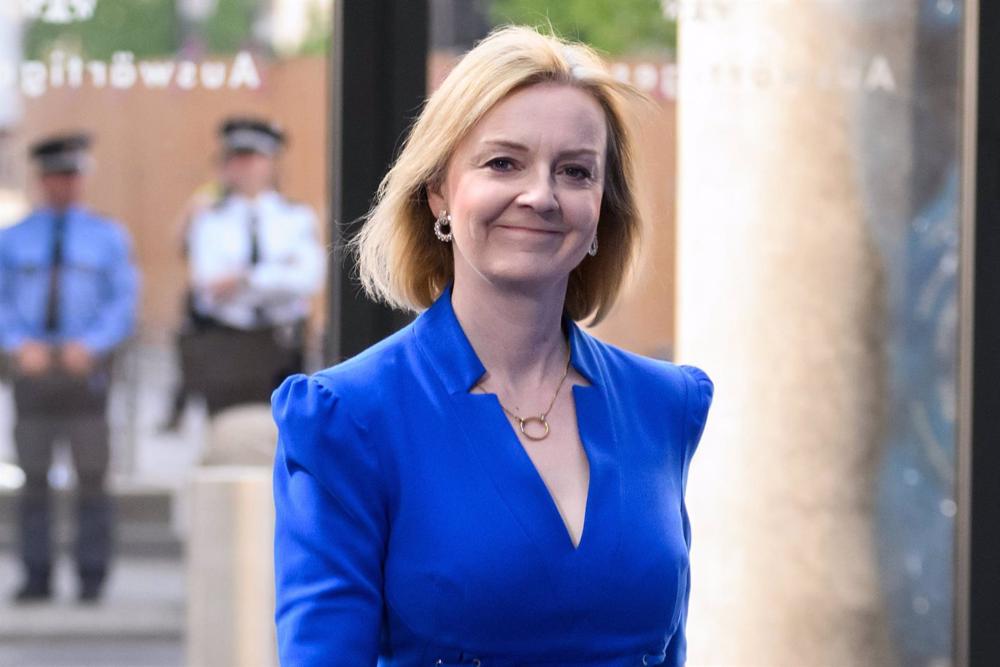
Former British Prime Minister Liz Truss lamented the lack of support from her Conservative party and the «powerful economic establishment» during her brief tenure at the helm of the country, during which she never enjoyed «a real opportunity» to implement her policies.
In her first detailed assessment of her term in office in a letter published in the Sunday edition of the ‘Telegraph’, Truss has nevertheless acknowledged that she was not «blameless» for the catastrophic economic policy put forward by her finance minister, Kwasi Kwarteng.
Kwarteng was dismissed in mid-September after only a week in office after both the markets and members of the Conservative Party itself questioned his tax reform proposal, an episode that finally took Truss herself six weeks after she became Prime Minister.
The Executive put £45 billion worth of tax cuts on the table that convinced neither the financial nor the political environment and, in currency terms, put the pound on the ropes. Truss was forced to withdraw within days the proposal to cut income tax for the wealthy from 45 percent to 40 percent.
«I do not pretend to be innocent about what happened but, fundamentally, I did not have a real realistic opportunity to enact my policies because of a very powerful economic establishment, compounded by a lack of political support,» the former prime minister has written.
«While I anticipated resistance to my program from the establishment, I underestimated the extent of it, just as I underestimated the resistance within the Conservative parliamentary bloc to deregulate the economy,» she added.
Truss also accused the Office for Budget Responsibility (OBR) of putting fiscal policy in a «straitjacket,» before expressing disagreement with its assessment of the impact of the proposed tax cuts.
The former prime minister has also claimed that she was not warned of the risks to bond markets from liability-driven investments (LDIs), bought by pension funds, which forced the Bank of England to intervene to prevent them from collapsing as the cost of government borrowing soared.
«Unfortunately, the government became a useful scapegoat for problems that had been brewing for several months,» he has pointed out.
Truss extended his criticism to the international sphere. «There was a concerted effort by international actors to challenge our Growth Plan,» he said, referring to the criticism and skepticism exhibited by U.S. President Joe Biden and International Monetary Fund (IMF) officials.
«The IMF made comments on distributional aspects instead of assessing market stability, so it is difficult to conclude that they were not politically motivated in making these statements,» he lamented. «Something had to be done,» he added. «The ‘status quo’ was not an option.»
All in all, Truss wanted to end on a note of optimism. «While I regret not being able to implement my full program, if we are bold and enterprising and give people and businesses the freedom they need to succeed, I believe we can turn things around. There is hope for the future,» he concluded.
Source: (EUROPA PRESS)






